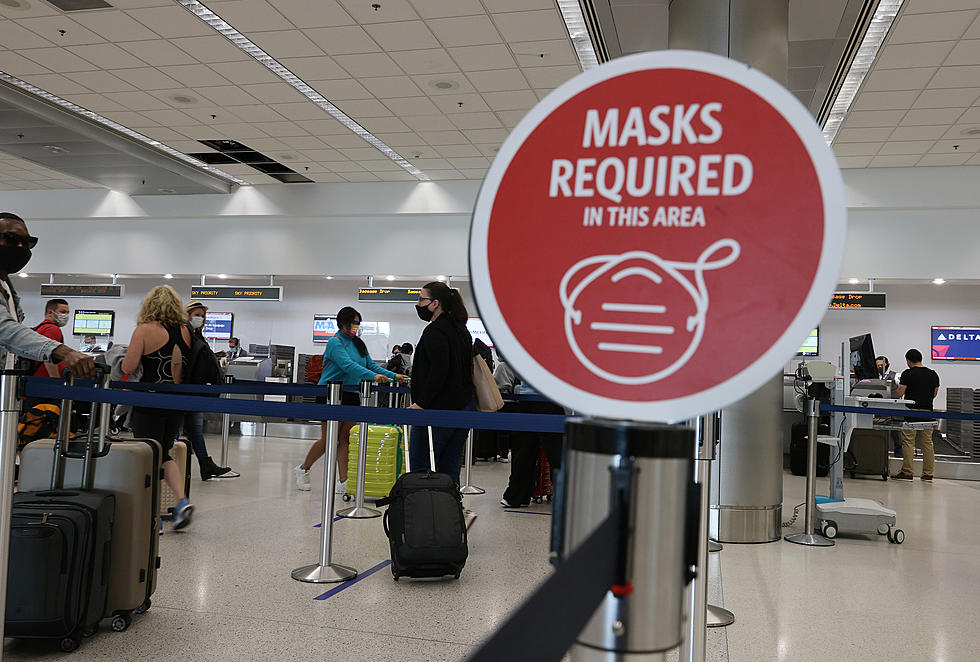
Flu Claims Life of Wichita Falls Man – Fifty Deaths in Texas So Far
An unidentified 45 year-old Wichita Falls man has died as a result of complications of the flu. This is the first reported death in Wichita County, but there have been 50 flu-related deaths in Texas so far this year. Ask anyone in the healthcare profession and they’ll tell you-an ounce of prevention is worth a pound of cure. The H1N1 or ‘swine flu’ has reached pandemic proportions. The World Health Organization declared the pandemic in 2009.
Influenza was once a major killer. The 1918-1920 H1N1 pandemic killed millions of people worldwide. According to the Daily Mail, Dr. Paul Pepe of Dallas’ Parkland Hospital told NBC-Chicago that the flu is a 'very serious' illness and can be especially dangerous if someone who catches it has and underlying medical condition. Dr. Pepe, as quoted in the Daily Mail-
'It's a virus, so it basically causes inflammation and reaction throughout your whole body and many of your organs may not work so well and in really extreme cases you may have organ failure as a result,' he said. The real reason many people die is they have an underlying condition and they might not even know it. They may have an underlying heart problem and this is a major stressor on your system.'
The CDC offers the following recommendations on fighting the flu-
1-Take time to get a flu vaccine
- CDC recommends a yearly flu vaccine as the first and most important step in protecting against flu viruses.
- Everyone 6 months of age and older should get a flu vaccine as soon as the current season's vaccines are available.
- Vaccination of high risk persons is especially important to decrease their risk of severe flu illness.
- People at high risk of serious flu complications include young children, pregnant women, people with chronic health conditions like asthma, diabetes or heart and lung disease and people 65 years and older.
- Vaccination also is important for health care workers, and other people who live with or care for high risk people to keep from spreading flu to high risk people.
- Children younger than 6 months are at high risk of serious flu illness, but are too young to be vaccinated. People who care for them should be vaccinated instead.
2-Take everyday preventive actions to stop the spread of germs
- Try to avoid close contact with sick people.
- If you are sick with flu-like illness, CDC recommends that you stay home for at least 24 hours after your fever is gone except to get medical care or for other necessities. (Your fever should be gone without the use of a fever-reducing medicine.)
- While sick, limit contact with others as much as possible to keep from infecting them.
- Cover your nose and mouth with a tissue when you cough or sneeze. Throw the tissue in the trash after you use it.
- Wash your hands often with soap and water. If soap and water are not available, use an alcohol-based hand rub.
- Avoid touching your eyes, nose and mouth.
- Clean and disinfect surfaces and objects that may be contaminated with germs like the flu.
- If you get the flu, antiviral drugs can treat your illness.
- Antiviral drugs are different from antibiotics. They are prescription medicines and are not available over-the-counter.
- Antiviral drugs can make illness milder and shorten the time you are sick. They may also prevent serious flu complications. For people with high risk factors, treatment with an antiviral drug can mean the difference between having a milder illness versus a very serious illness that could result in a hospital stay.
- Studies show that flu antiviral drugs work best for treatment when they are started within two days of getting sick, but starting them later can still be helpful, especially if the sick person has a high-risk health or is very sick from the flu.
- Flu-like symptoms include fever, cough, sore throat, runny or stuffy nose, body aches, headache, chills and fatigue. Some people also may have vomiting and diarrhea. People may be infected with the flu, and have respiratory symptoms without a fever.
Flu vaccines are available through the Wichita County Health District. Call the Health District at (940) 761-6841 for more information.
More From Newstalk 1290









